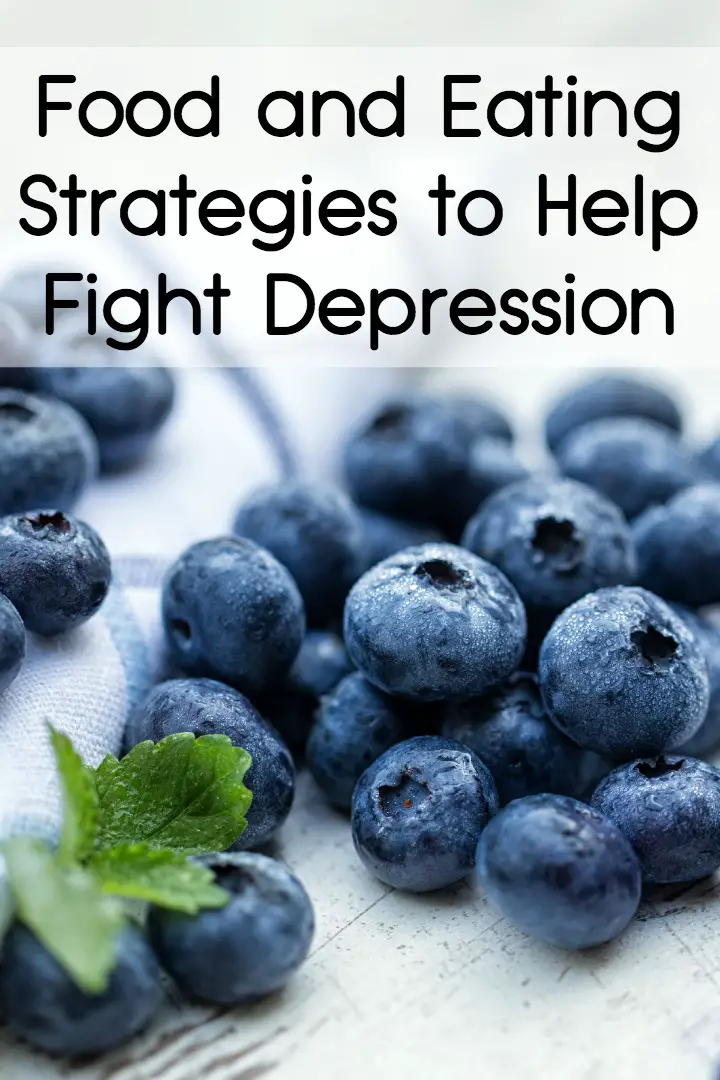Food and Eating Strategies to Help Fight Depression
Is depression part of your life? When negative feelings have taken hold of you and you feel depressed regularly, it is certainly time to take a look at what you’re putting into your body. What is your fuel? Food has a great impact on mood and how we feel.
How and what you eat can have a significant impact on your mood throughout the day. Adjusting from a cranky mood to a cheerful one is more about what you feed your body than anything else. By making wise, healthy food choices, you can expect your mood to improve almost immediately. If you haven’t already, try using these food strategies help with depression. If your depression is chronic, follow these guidelines and also work with a trusted physician.
Here are 4 Food and Eating Strategies to Help Fight Depression
 1. Increase intake of nutrient-rich foods.
1. Increase intake of nutrient-rich foods.
While many nutrient-rich foods might not be as “exciting” as sugar, they’re better for you. Eating nutrient-rich foods is one of the main tenets of the very popular Paleo Diet. They help your bodily functions perform optimally and elevate your mood.
- A great resource is Your Personal Paleo Code.
- Folate, thiamine, and magnesium are believed to heighten your mood. Research has shown that these minerals positively impact those with depression.
- Although you may not be suffering from depression, you can likely expect the minerals to work wonders for your mood over time.
- Choose foods like leafy greens, pastured meats, pistachios, and pumpkin seeds as great sources of these minerals.
2. Cut the sugar!
Be warned. Sugar is absolutely, positively, the enemy of stable, positive moods! You’ll almost always get a rush from a sugar binge. But you can almost always expect the crash that comes when it hits your blood stream, too! Plus, added inflammation and stress on your all functions within your body.
- A great resource is The Sugar Impact Diet.
- Sugar sometimes helps when there are other factors affecting your energy level. But avoid turning to it as your source of energy.
- Remember that sugary foods have other negative effects apart from the crash. Excess sugar is stored in your body and puts you at risk for weight gain, skin reactions, and even diabetes.
3. Eat enough and eat frequently to avoid blood sugar dips.
One of the biggest ways we impact our mood is by not eating frequently enough. Allowing your blood sugar to drop has a serious impact on many bodily functions but also on your mood. It will certainly take more effort but be sure you are eating in a way where your blood sugar does not rise and fall.
4. Stay hydrated.
You’ve heard lots of stories about water doing wonders for your body. But you probably didn’t know that lack of it affects your mood. Believe it or not, water may be the key to addressing lingering bad moods.
- Neglecting to stay hydrated daily can lead to uncomfortable side effects. In most cases, a mildly dehydrated person experiences headaches, fatigue, tension, and anxiety.
- Dehydration also impacts concentration, reasoning, and alertness. It’s very easy to get frustrated with yourself when you’re far from being on the ball.
It’s always important to consider the impact of diet. Remember that your body performs in accordance with what you give it. Give it a healthy selection of foods so it has the best chance to keep you in a positive state of mind!
